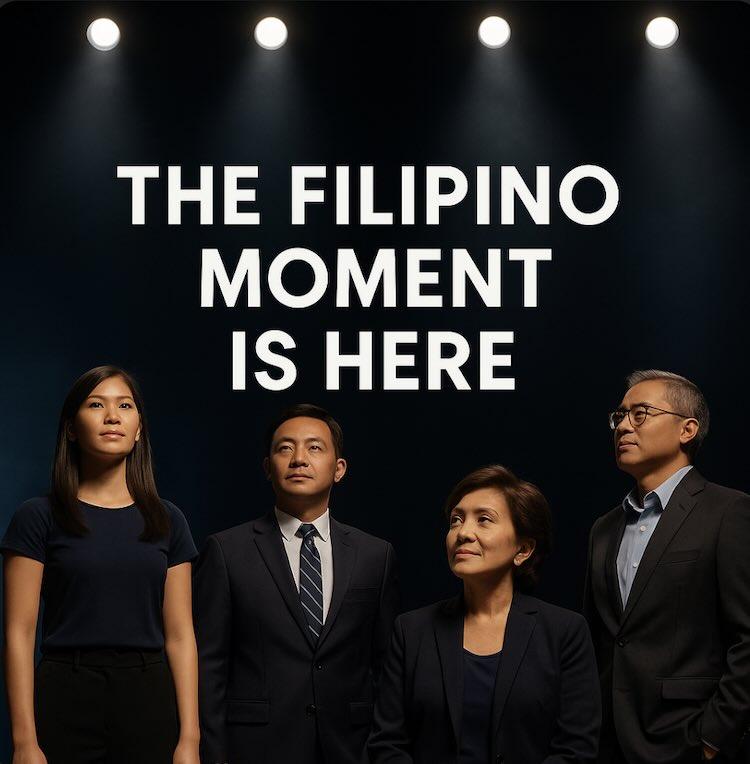THE United States Citizenship and Immigration Services (USCIS) has defined “public charge” as an individual who is likely to become primarily dependent on the government for subsistence, as demonstrated by either the receipt of public cash assistance for income maintenance or institutionalization for long-term care at government expense.
This has been a policy of the U.S. government: to make sure the foreign national who is filing for immigration benefits will not be “pabigat” to America. The USCIS further stated that since the 1800s, Congress has put into statute that individuals are inadmissible to the United States if they are unable to care for themselves without becoming public charges. Since 1996, federal laws have stated that foreign nationals generally must be self-sufficient.
On August 14 of this year, the U.S. Department of Homeland Security (DHS) published the Inadmissibility on Public Charge Grounds final rule which provides guidance on how to determine if someone applying for admission or adjustment of status is likely at any time to become a public charge.
I interviewed Filipina immigration lawyer Atty. Lou Tancinco about this “Final Rule” to help us better understand this new ruling of the Trump administration.
Q: Atty. Lou, how does this “final rule” published by the DHS determine if someone applying for admission or adjustment of status is likely to become a public charge at any time in the future? What is the difference between this new ruling and what have been followed by the USCIS for so many decades?
A: Prior to this new rule, an applicant for green card may submit an Affidavit of Support accomplished by the Petitioner or a co-sponsor to indicate that the applicant will not be a public charge. This was sufficient under the prior rules. Now with the new public charge rules, an affidavit of support is just one of the factors taken into account. Instead, a totality of circumstances will be examined and the USCIS may now look into other factors such as employability, age, health and prior receipt of public benefits by the applicant as indicative that the applicants are more likely to become a public charge and be denied the green card application. Another difference, is the expansion of the meaning of public charge. This rule redefines the term ‘‘public charge’’ to mean an alien who receives one or more designated public benefits for more than 12 months in the aggregate within any 36-month period (such that, for instance, receipt of two benefits in one month counts as two months). This rule defines the term ‘‘public benefit’’ to include cash benefits for income maintenance, SNAP, most forms of Medicaid, Section 8 Housing Assistance under the Housing Choice Voucher (HCV) Program, Section 8 Project-Based Rental Assistance, and certain other forms of subsidized housing.
Q: What kind of applicants will be directly affected by this new ruling published by the DHS?
A: Those who will be directly affected are the applicants for immigrant and non-immigrant visas or those seeking to apply for green cards or immigrant visas through adjustment of status or through consular processing. Also important to note, are green card holders who are seeking admission or have been out of the country for at least 180 days and re-entering the U.S. They will be examined also if they are considered public charge.
Q: Any kinds of applicants exempted from this new ruling?
A: The published regulation excludes from the public benefits definition: public benefits received by individuals who are serving in active duty or in the Ready Reserve component of the U.S. armed forces, and their spouses and children; public benefits received by certain international adoptees and children acquiring U.S. citizenship; Medicaid for aliens under 21 and pregnant women; Medicaid for school-based services (including services provided under the Individuals with Disabilities Education Act); and Medicaid benefits for emergency medical services.
Q: The USCIS website says “Any alien who, in the opinion of the consular officer at the time of application for a visa, or in the opinion of the Attorney General AT THE TIME OF APPLICATION for admission or adjustment of status, is likely at any time to become a public charge is inadmissible[…] In determining whether an alien is excludable under this paragraph, the consular officer or the Attorney General shall at a minimum consider the alien’s-(I) age; (II) health; (III) family status; (IV) assets, resources, and financial status; and (V) education and skills .” Let’s break this down. What if the applicant has been working in the United States with a working visa, and had been approved for a green card, had a work authorization and had been paying all required taxes taken from his or her paycheck. And then an emergency happened — whether it be losing a job, or a medical emergency, which made the applicant access publicly funded benefits just at the time he could already apply for adjustment of status. Would this cause him to be inadmissible and his application be denied?
A. Yes, if an applicant uses public benefits as long as the application is pending, then he or she may be considered inadmissible and application may be denied. However, Medicaid benefits for medical emergency services are exempt from the definition of public benefits. But if this applicant continues to avail of the publicly funded medical services as defined in the regulation, s/he would likely be considered a public charge and this fact is a ground to deny the application for adjustment of status.
Q: I want to focus now on the clause that says “, the consular officer or the Attorney General shall at a minimum consider the alien’s-(I) age; (II) health; (III) family status; (IV) assets, resources, and financial status; and (V) education and skills . .”. How are these measured? Or are these solely dependent on the impression or subjective determination of the consular officer or Attorney General?
A: While admittedly the consular officers or USCIS examiners have wide discretion in determining public charge, there are also parameters on what weigh heavily in examining the applicants. For example on age, applicants under 18 not accompanied or following to join a parent or guardian and or applicants advanced age is a negative factor. On the health factor, applicant’s chronic health conditions with high medical costs or that may prevent the applicant from maintaining employment are viewed as negative factors.
Q: What repercussions would this expanded public charge rule have on immigrants including the Filipino American community?
A: This new public charge rule was designed to create fear and confusion among our immigrant communities. It is targeted against legal immigrants who are forced to avoid much needed medical help at the expense of their health just to keep their families together. In short, this policy places at risk the health and safety of families throughout the nation and that includes our Filipino immigrant community.
Q: Critics of the new ruling contend that the public-charge provision has long been a weapon of racism and classism in the United States, and has been used and abused by anti-immigrant administrations throughout US history. They also argue that the mostly white Foreign Service — which is only 5.4 percent African American and 5.6 percent Hispanic — is being tasked with making such value judgments on a mostly brown and black immigrant population. Immigrant rights advocates say this Trump Administration ruling should not just be rolled back, but that the public charge rule should totally be abolished. But would you agree that there are indeed some immigrants who abuse the system and just totally rely on the government for their needs? How should this be addressed?
A: The current rules are fine as they are and there is no need to change them. I do not want to see current public charge rule abolished but also I do not wish it be changed either. There is no need for this new public charge rule. Expanding the rules to prevent deserving immigrants from entering the United States to be with their family is simply cruel and unjust.
Q: Would this Final Ruling be in effect immediately? Is there anything the people can do to voice out their opposition to or support for this expanded public charge ruling?
A. The rule takes effect on October 15, 2019. There is a 60-day rule from publication before it takes effect. Those who are opposed to the public charge rules must contact their respective legislators to voice their opposition. Or they can also contact and support organizations that have filed lawsuits to abolish these new rules.
* * *
Gel Santos Relos is the anchor of TFC’s “Balitang America.” Views and opinions expressed by the author in this column are solely those of the author and not of Asian Journal and ABS-CBN-TFC. For comments, go to www.TheFil-AmPerspective.com, https://www.facebook.com/Gel.Santos.Relos







